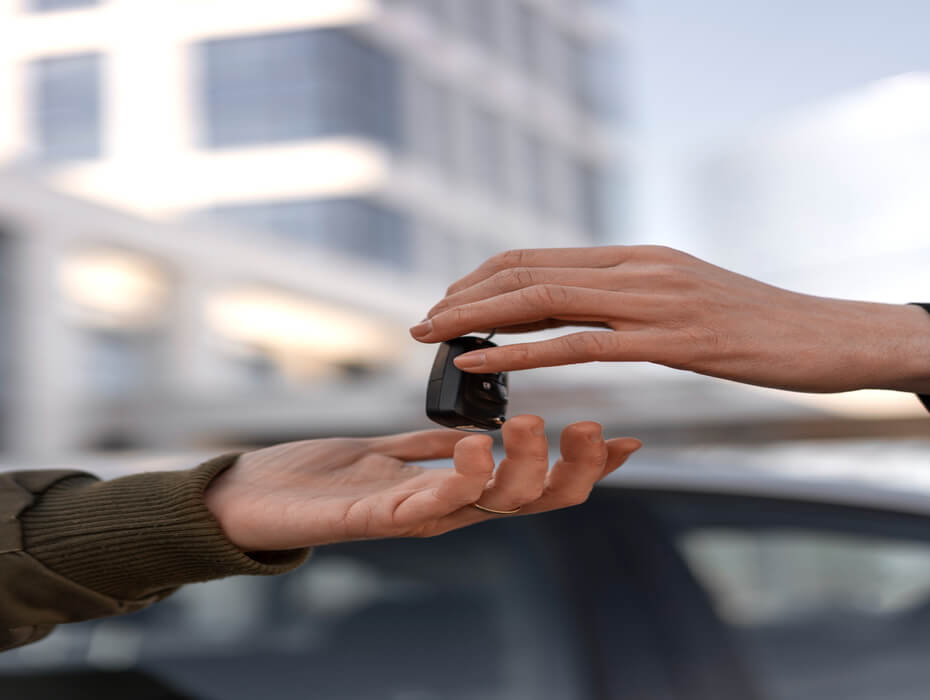
What Really Happens When You Let a Friend Borrow Your Car

by Erin Anderson
Letting a friend borrow your car might seem like a casual favor — maybe they need to run an errand, get to work, or just don’t have reliable transportation. But what feels like a simple “yes” can come with more strings attached than most people realize. Once your keys are in someone else’s hands, so are your responsibilities, at least in the eyes of your insurance provider.
Whether it’s a one-time favor or something you do regularly, here’s what actually happens when someone else drives your car — and how to protect yourself in the process.
Your Insurance Follows the Car, Not the Driver
This surprises a lot of people: in most cases, your car insurance policy covers your vehicle no matter who’s driving it — assuming you gave them permission. That means if your friend causes an accident, your insurance is likely on the hook first, not theirs.
Liability, collision, and comprehensive coverage typically apply as they would if you were behind the wheel. If damages exceed your limits, the driver’s insurance might kick in as secondary — but don’t count on it. The bottom line: if things go wrong, it’s your policy that could take the hit.
Your Rates Could Go Up — Even If You Weren’t Driving
Unfortunately, insurance companies don’t care much about who was actually driving when an accident occurs. If a claim is filed under your policy, your premium could increase regardless of whether you were in the car or not.
Even worse? If your friend isn’t covered or causes serious damage, you could end up paying out of pocket — or facing a messy situation with your insurer. It’s one of those rare cases where being “too nice” can actually cost you long after the favor’s been returned.
If They Get a Ticket, You Might Still Feel It
Let’s say your friend borrows your car and gets a parking ticket or blows through a toll. In most cases, those fines go to the vehicle owner, not the driver. And while speeding or traffic violations typically stick with the person driving, having a string of issues associated with your license plate can still raise red flags — especially with insurance or registration renewals.
Before you hand over the keys, make sure your friend is licensed, sober, and responsible — it’s not just about the law, it’s about your liability.
Regular Borrowing Might Require Extra Coverage
If someone borrows your car regularly — like a roommate, partner, or family member — you might need to officially add them to your policy. Occasional use is usually fine, but frequent drivers should be listed, even if they don’t own the vehicle.
Adding them may bump your rate slightly, but it’s far better than having a claim denied later because your insurer says the person wasn't authorized or expected to be behind the wheel.
If an Accident Happens, Document Everything
If your car is in an accident while someone else is driving it, you should treat it like you were there: gather photos, get a police report, and notify your insurance company as soon as possible. Have your friend write down exactly what happened, and be clear and honest with your provider.
Trying to cover for them — or fudge the truth — can backfire fast. Insurers are pretty good at figuring out what actually happened, and misrepresenting the facts could risk denial or even policy cancellation.
The Bottom Line
Before you hand over your keys, make sure you trust the person, understand your policy, and know where you stand if things don’t go according to plan. Letting a friend borrow your car is a generous gesture, but it’s one that comes with real responsibilities — and real risks.
If they get into an accident, it’s your insurance, your premiums, and possibly your wallet that could take the hit. A quick favor shouldn’t turn into a long-term headache — and with a little awareness, it doesn’t have to.
And while you’re thinking about your coverage, it’s a smart time to review your current policy or compare quotes. Whether you’re lending your car more often or just want extra peace of mind, checking for better rates or more flexible options could help you save.